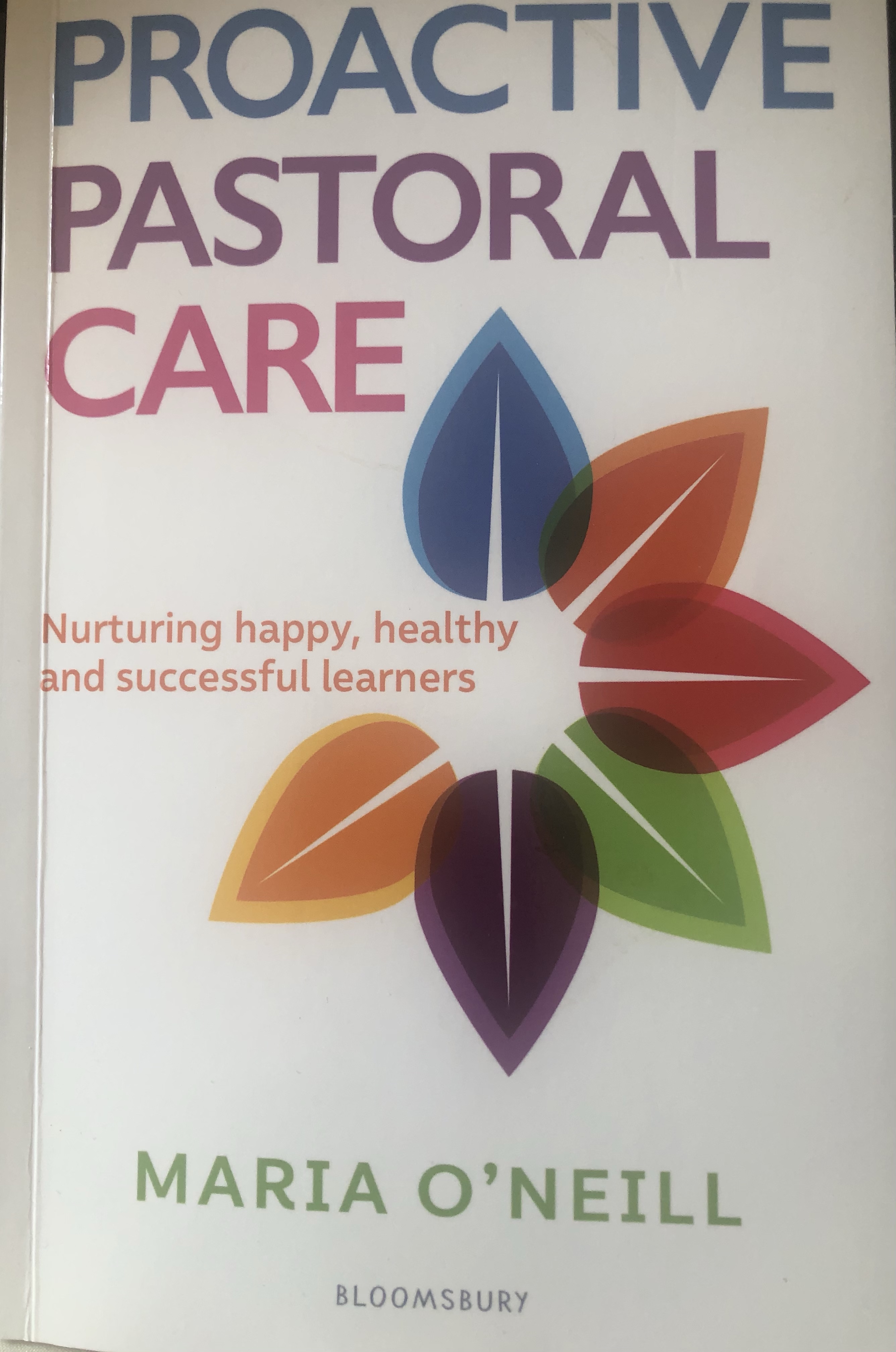
On 15th April 2021, I attended the launch of Maria O’Neil’s book Proactive Pastoral Care. I was delighted that Maria asked me to be on the panel. I had read the book with my governor hat on and had made some notes in preparation. I thought it would be good to share these, so here goes.
-
The first thing which I liked about the book is that it makes you think what you can do about pastoral care proactively rather than waiting till something needs a reaction from you. As governors, we hold school leaders to account and we should check if systems and processes are there to stop something happening as well as how school leaders deal with things after they happen ie holding them to account for the proactive as well as the reactive.
-
Maria’s book is useful for governors as it gives us indications of what to hold the school leaders to account for as far as pastoral care is concerned. For example, right at the beginning of the book Maria talks about what she considers to be the core elements of proactive pastoral care: character education, parental engagement and PSHE curriculum. So, right at the start of the book this gives governors three lines of enquiry. She also talks about school culture. The first core role of governors is to ensure there is clarity of vision, ethos and strategic direction. Ethos is a Greek word meaning character. Much of what Maria discusses in the book, such as well being, school culture, eliminating bullying, character education etc all contribute to the ethos or character of the organisations we govern and therefore reading this book can help governors fulfil part of their first core role.
-
I loved the fact that Maria makes the point that character education isn’t about fixing people and that it isn’t only about what happens in PSHE lessons. Again, this helps governors judge whether or not character education is the golden thread which runs through the whole school curriculum.
-
Governing boards should ensure that they engage with stakeholders. In fact, NGA has proposed that this be the fourth core role of governors. Maria has a whole chapter on community pastoral engagement which governors would find useful.
-
I’m very glad that Maria has included a chapter on e-safety. Again, this will give governors valuable insights into this topic and help them plan how to ask the right questions of their school leaders.
-
Finally, I love the questions for Reflections at the end of each chapter and the space to write down your thoughts. These include questions the board can ask itself such as
-
How would you describe your school culture? Does it provide the most ideal growing situation?
-
What are your school values?
-
-
And questions to ask of school leaders such as
-
How often do staff receive pastoral training?
-
What opportunities do your curriculum and teaching provide for character development?
-
Maria’s book is very easy to read and you can dip in and out of it. I have really enjoyed reading Maria’s book and I know I will be using it in the future.
